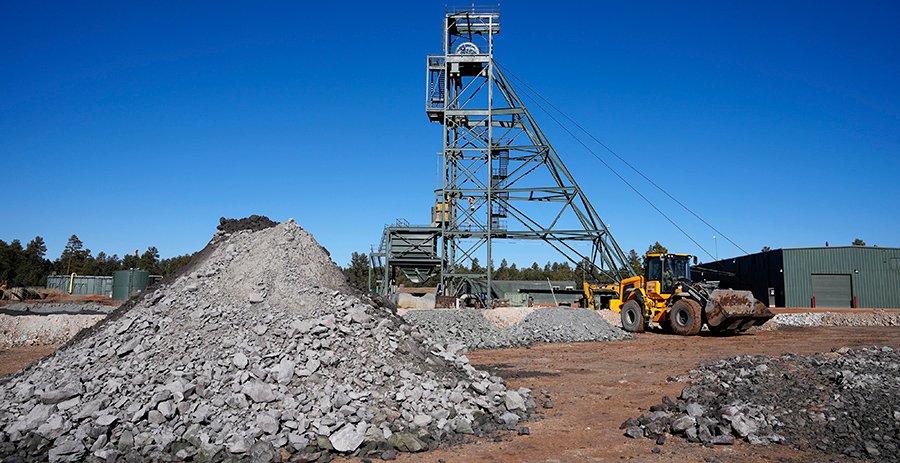Politics
Tribe Moves to Halt Uranium Truck Convoys

The Navajo Nation has taken a firm stand against the transportation of uranium through its land, invoking a tribal law that prohibits such movement. On July 30, the plan to intercept and reroute trucks carrying uranium ore back to the mine in northern Arizona was put to the test.
The operation, however, hit a snag when tribal police discovered that the two semi-trucks contracted by Energy Fuels Inc. had already vacated the reservation before any action could be taken. Addressing this turn of events, Navajo Nation President Buu Nygren committed to enforcing roadblocks designed to halt uranium ore shipments until proper regulations are established. Speaking to the Associated Press, Nygren emphasized the jurisdiction of Navajo territory.
Enacted in 2012, the law banning uranium transport on the reservation includes exceptions for state and federal highways. These highways are being utilized by Energy Fuels for transporting ore from the Pinyon Plain Mine to a processing facility in Blanding, Utah. Despite these legal nuances, President Nygren and Navajo Attorney General Ethel Branch argue that their plan to police these routes remains legally robust.
Energy Fuels began hauling the uranium ore as scheduled on July 30, notifying relevant federal, state, county, and tribal officials in advance. Nevertheless, the company did not specify the exact date of transit, which left the Navajo Nation scrambling. Curtis Moore, the company’s spokesperson, pointed out that sufficient information had been provided to various authorities, emphasizing a history of safe transportation of uranium ore without any adverse health or environmental effects.
The Arizona Department of Transportation and the Arizona Department of Public Safety were approached for comments but did not respond immediately. As for the Kaibab National Forest, officials were informed post-factum and have since communicated with tribes and local entities, requesting prior notification for future activities.
Tensions remain high due to past negative impacts of uranium mining on the Navajo Nation, including contamination and health issues. Energy Fuels has assured that their operations adhere to safety standards, using covered vehicles clearly marked as carrying radioactive material. Nonetheless, the legacy of uranium’s harmful effects leaves tribes and environmental groups wary.
In the past, the Navajo Nation has effectively blocked uranium mining, as seen in 2013. Stephen Etsitty of the Navajo Nation Environmental Protection Agency revealed ongoing discussions with Energy Fuels since March, with expectations of uranium transport delayed until later in the year. The premature transportation on July 30 caught officials off guard, leading to frustration and concerns about emergency preparedness.
While Energy Fuels asserts compliance with notification protocols in the event of spills or accidents, past incidents averaging every three to five years underscore the potential risk. According to Etsitty, although raw uranium ore poses a lower radiation threat than processed material, precautions remain essential to ensure public safety.


















